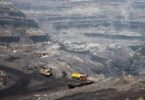Mohaimin Shah
Our history has focused so much on domestic politics, relationships with our neighbours and impressing the western world that we have generally overlooked non-traditional security issues that haunt the country in extreme measures. The most hostile of which is the immense change in the earth’s environment. Climate change is real and it is changing our planet far sooner than we had previously realized. The entire world has been paralyzed on how to drop the carbon emissions and bring it back to pre-industrial time scale. Pakistan’s stance is also no different.
According to the Global Climate Risk Index our country is placed on the fifth most vulnerable country to climate change. Industrialization, rising population, rapid urbanization are the leading factors in the increase in temperatures across the country. There has also been drastic increase in floods in the country over the past few years and not to mention for the first time in many years, Islamabad witnessed its entire sector drowned in floods. These floods are having negative implications on our already burdened economy. The population of the country is also drastically increasing and would certainly reach 227 million by 2025. These factors along with factories producing harmful chemicals that float in the air and damage the ozone layer is now causing far-reaching consequences for the country. Pakistan is vulnerable and it has to take measures to replenish the attacks and effects of climate change.
The current government has taken drastic measures to tackle the adverse effects of global warming such as the 10 billion tree tsunami (a successor to an already completed aim – 1 billion tree tsunami), plans for expanding Rakhjhok forest in Punjab, plantations of miyawaki forests in various cities. All of them a part of Pakistan’s “clean and green initiative”. However, aims of the government seem focused on achieving these objectives, Pakistan still has to do a lot more in tackling the adversity of climate change or else it will soon face its harsh consequences.
Rising carbon emissions and release of harmful pollutants in the air will cause health concerns for not just humans but its results will also be seen in the plant and animal kingdom. Water scarcity seems to be highly likely in the region’s future and that to can inflict on further derails on relationship with India (Termination of Indus Waters Treaty).
Pakistan needs to step in and take quick and speedy measures to counter the effects of global warming and its long term side effects. It needs to make laws, ones that can ensure safety of the environment and should take necessary steps to implement it to help reduce the carbon emissions and harmful pollutants in the air, it needs to generate mass awareness among the public to highlight the harmful effects of climate change and how it should be tackled individually (Media platforms can play a huge role in this regard), rapid urbanization should be dealt with immediately and encroached areas should be demolished especially in areas where buildings our constructed over nullah’s and water stream-lines. Dams should be constructed and people should have access to clean water and they should at no cost contaminate it. A clean and green Pakistan is the future and it can save us from the harmful impacts of Climate Change.






